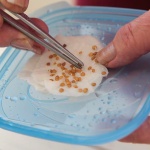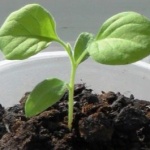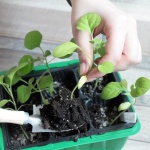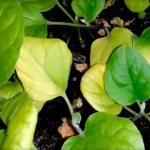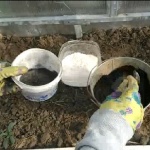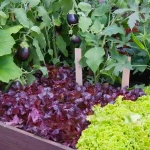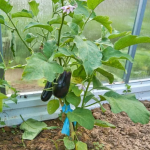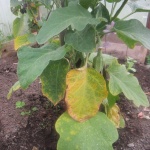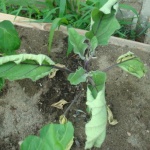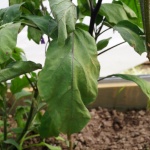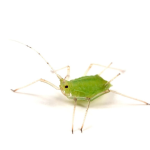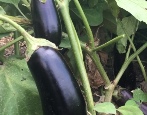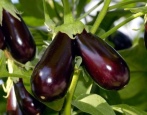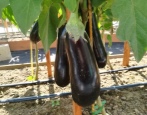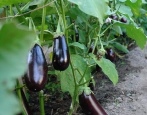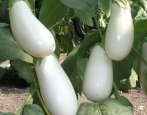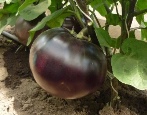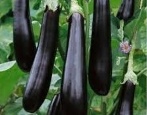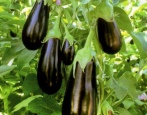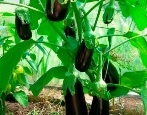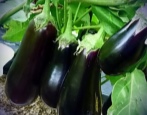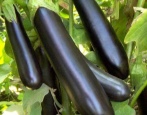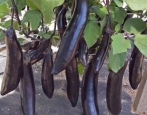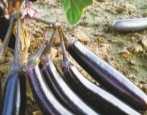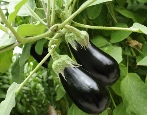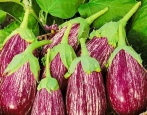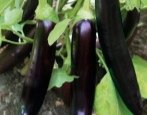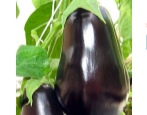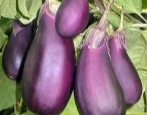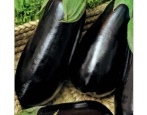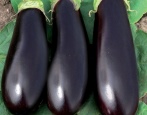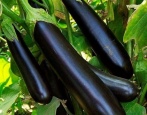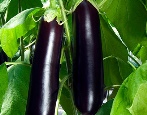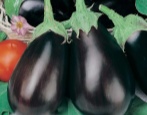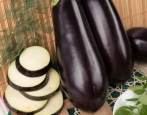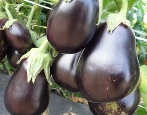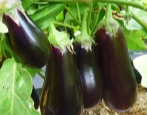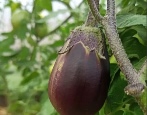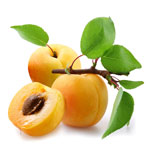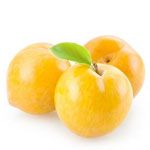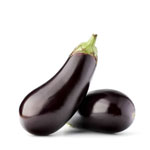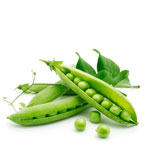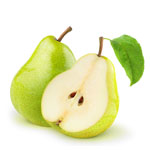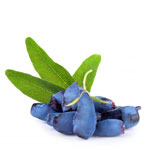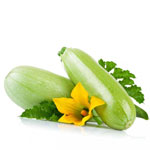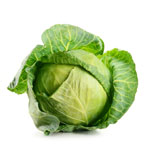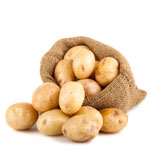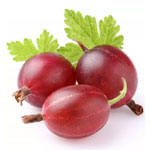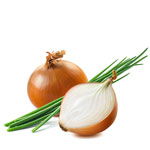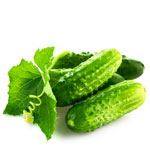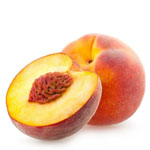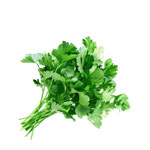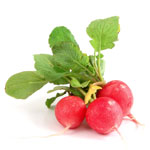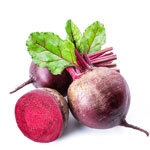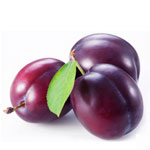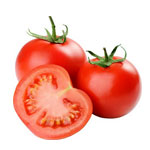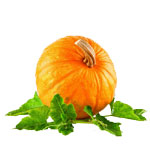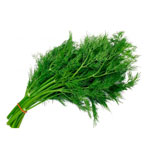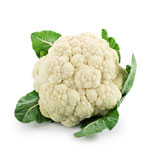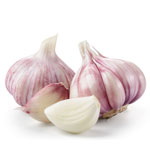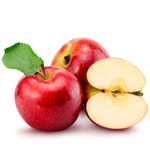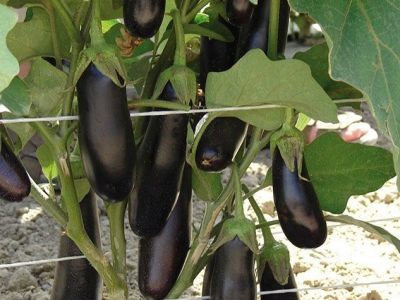
- Authors: Frits Herlaar
- Name synonyms: Destan
- Year of approval: 2010
- Growth type: medium-sized
- Bush height, cm: up to 70
- Fruit shape: cylindrical
- Fruit weight, g: 300
- Yield: high yielding
- Fruit color: dark purple
- Transportability: transportable
Many gardeners and farmers, choosing an eggplant variety for cultivation, prefer hybrid varieties bred in Holland, since they are usually characterized by cold resistance, high yields and unpretentious agricultural technology. A striking example is the Destan hybrid with early ripening.
Breeding history
Destan eggplant is a hybrid bred by Dutch breeders Frits Herlaar over 10 years ago. In 2010, the vegetable crop was included in the State Register of approved for use throughout the territory of the Russian Federation. Eggplant is cultivated indoors and outdoors. In the middle lane and northern regions, cultivation in greenhouse structures is recommended, and in the south - on garden ridges.
Description of the variety
The Dutch hybrid is a powerful and hardy plant, growing to a height of 60-70 cm. The bush has semi-sprawling branches, moderate foliage with green, slightly wavy leaves, a strong central stem with a pale anthocyanin color and a barely noticeable edge, as well as rare thorniness on the calyx. A characteristic feature of the plant is a developed root system.
During the flowering period, medium-sized pale purple flowers form on the bushes. Fruits on the bushes are wilted. As a rule, a huge number of aligned specimens (8-15) ripen on each healthy bush, if formed into 2-3 stems.
Characteristics of the appearance of plants and fruits
Destan is a group of large-fruited eggplants. Vegetables are all the same shape and length and are often grown commercially. The average weight of a vegetable is 300 grams, and the length is up to 25-27 cm. The shape of the fruit is elongated-cylindrical. The ripe vegetable is evenly covered with a dark purple color, sometimes almost black. The surface of the eggplant is smooth, with a pronounced gloss, without visible irregularities.
The peel is of moderate density, elastic, strong, which guarantees the safety of vegetables during transportation and long-term storage.
Purpose and taste
Destan eggplant has a memorable taste. The whitish-creamy pulp is endowed with a fleshy, tender, dense consistency without fiber, wateriness and voids. The vegetable has a pleasant taste, slightly oily, complemented by a classic aroma. The advantage of the variety is the absence of bitterness at the genetic level.
The harvested crop has a universal purpose - vegetables are stewed, fried, baked, frozen and, of course, canned. Very tasty caviar is obtained from this type.
Ripening terms
The hybrid is early maturing. From the moment of the mass appearance of sprouts to the first ripe fruits on the bushes, only 100-115 days pass. The fruits are ripening together, so it is recommended to remove it every 3-4 days. The fruiting period of the culture is extended. The peak of fruit recoil begins in the second half of July, and may continue until the autumn cold snaps.
Yield
Vegetable yield is good. On average, more than 4.2 kg of leveled vegetables can be removed from 1 m2 of plantings in a garden bed.In greenhouses, the yield is much higher - 6-7 kg / m2. On an industrial scale, you can count on 55-60 t / ha.
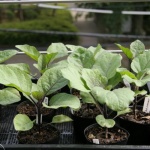
To get a tasty and bountiful eggplant crop, you must first grow strong and healthy seedlings. This culture is considered very capricious, therefore, you need to take care of seedlings when growing at home as correctly and carefully as possible.
Landing scheme
When cultivating eggplants, do not forget about the basic planting rules - density and distance between plantings. It is recommended to plant up to 4 bushes per 1 m2. Landing is carried out according to the scheme 40x60 cm.
Growing and caring
The hybrid is grown mainly by the seedling method. For this, bushes are selected (55-60 days) with a strong stem, 7-8 leaves and a formed rhizome. Seedlings are cultivated in May. The best precursors for eggplant are carrots, cabbage, radishes, and legumes.
Eggplant care consists of standard procedures: watering with standing water under the root (every 4-5 days), fertilizing 3-4 times per season (the plant reacts well to mineral complexes), loosening and weeding the soil, forming a bush of 1-3 stems , garter to trellis, removal of lateral shoots before the first branching, prevention of diseases and insect infestations. In greenhouses, do not forget about airing.
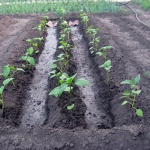
Planting eggplant is one of the most important stages in growing. When choosing a place for eggplants in your area, it is important to remember that this culture should be in warm soil, constantly illuminated by the sun. The plant is also very fond of spacious, open spaces, since its roots can grow over sufficient areas.
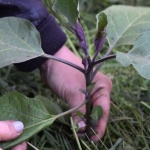
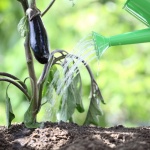
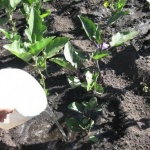
Soil requirements
Eggplants have no special requirements for the quality of the soil, the main thing is that the soil is light, breathable, moist and fertile. The acidity index should be neutral or low. The culture does not like swampy soils.
Required climatic conditions
Eggplant Destan is a stress-resistant culture. She is not afraid of high temperatures, short cold snaps, as well as short shading. For cultivation, you need a sunny area where there is a lot of heat and light, and there is also a barrier from drafts.
Disease and pest resistance
Good immunity ensures that the culture is resistant to tobacco mosaic virus and fusarium. Planting calendula or marigolds nearby will help prevent attacks of the Colorado potato beetle.
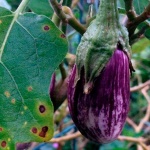
Eggplant is one of the most demanding crops. For its successful cultivation, it is necessary to create optimal conditions, as well as to carry out prevention and fight against diseases and pests. Eggplant often infects both fungal and viral diseases.If treatment is not started on time, you can completely lose the crop.
